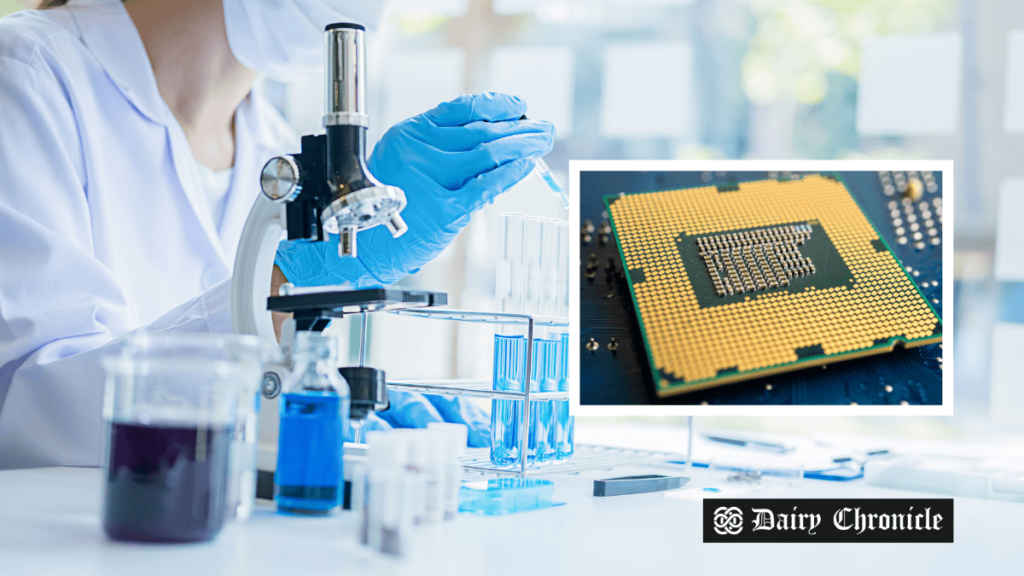The dairy industry faces significant milk waste during equipment cleaning, with an estimated 10,000 liters discarded daily. Researchers have developed a cost-effective microchip spectrometer to monitor substances in processing pipes, potentially saving millions of liters and improving environmental performance.
The dairy industry faces a critical challenge, with a significant amount of milk wasted during the cleaning of pipes at processing plants. Globally, farms are estimated to drain approximately 10,000 liters of milk daily to ensure equipment cleanliness before the next production cycle. However, a new innovation could transform this practice, potentially saving millions of liters from being discarded.
Innovative Solution
Researchers from the Technical University of Denmark (DTU), in collaboration with three technology companies, have developed an ultra-compact optical spectrometer based on a microchip. This advanced device enables precise monitoring of substances flowing through the pipes, distinguishing between milk, residual products, and cleaning agents. By implementing this solution, dairies can significantly reduce the amount of milk sent to waste, thereby enhancing their environmental performance.
Cost-Effective Technology
According to Professor Søren Stobbe, head of the Nexus project, existing spectrometers used in factories can cost around 100,000 euros, limiting their widespread use. In contrast, the new compact chip is much more affordable, allowing for the installation of multiple measurement points and providing more accurate control over the production process.
Environmental Impact
The development of this microchip is currently undergoing active testing, with scientists optimistic about its potential. This technology not only presents a cost-effective solution for dairy producers but also represents a substantial step toward mitigating the environmental impact of dairy production. Notably, the production of one liter of milk is associated with the emission of approximately 3.15 kg of CO2 equivalent.
Broader Applications
Beyond the dairy industry, the microchip technology holds promise for other food sectors, offering a means to improve food security and reduce food waste on a global scale. This innovative approach underscores the potential of technology to address critical sustainability challenges in food production.



